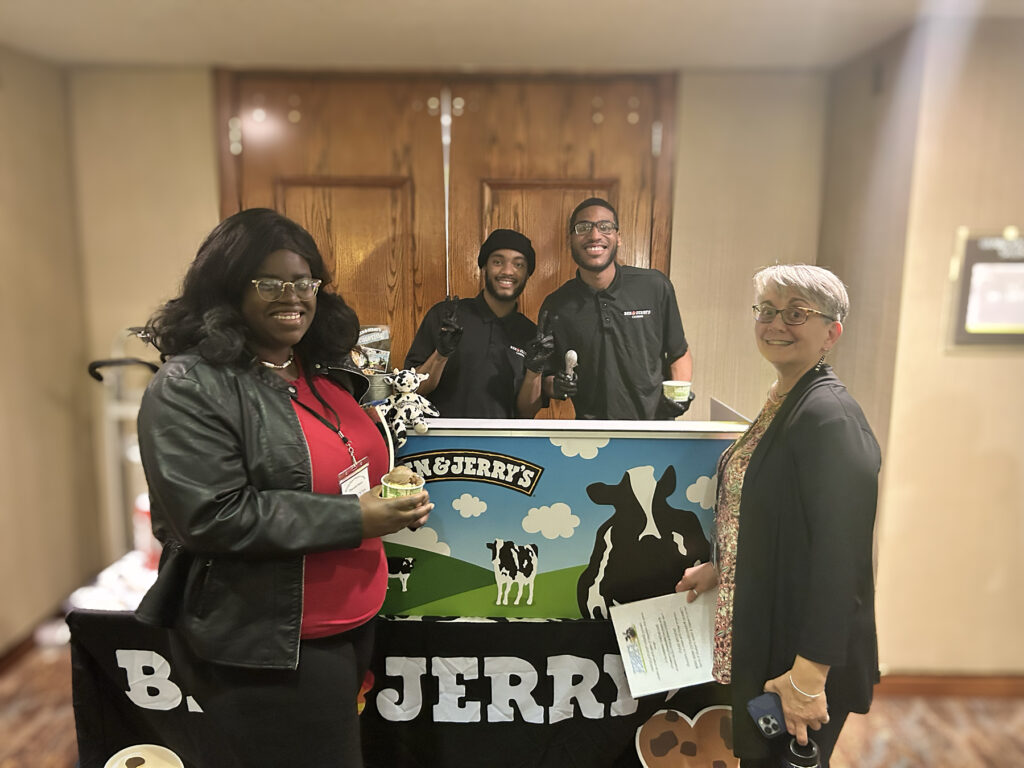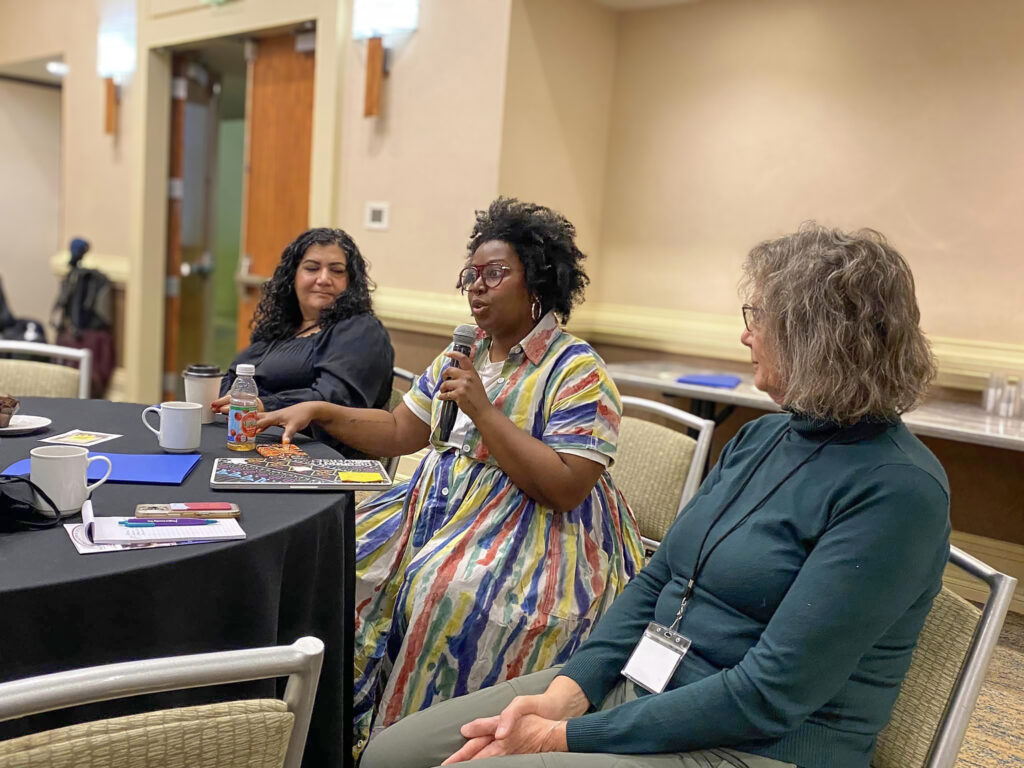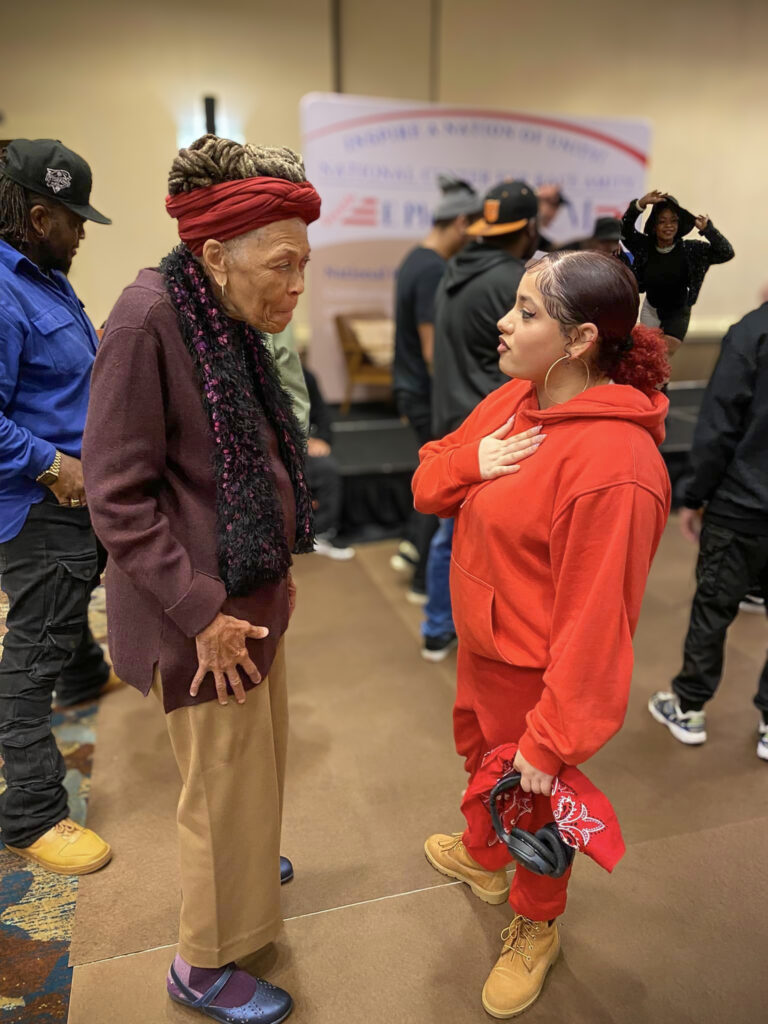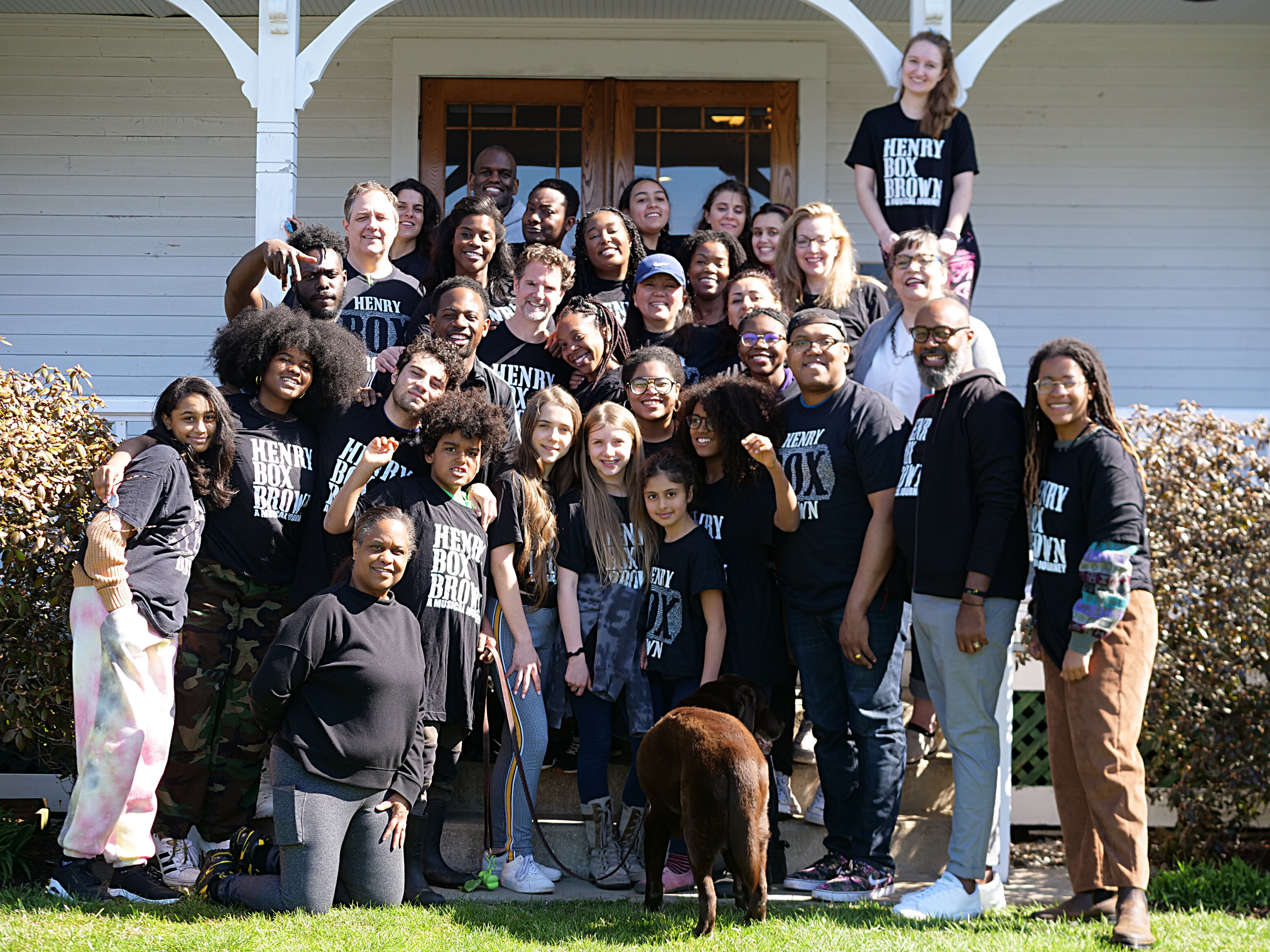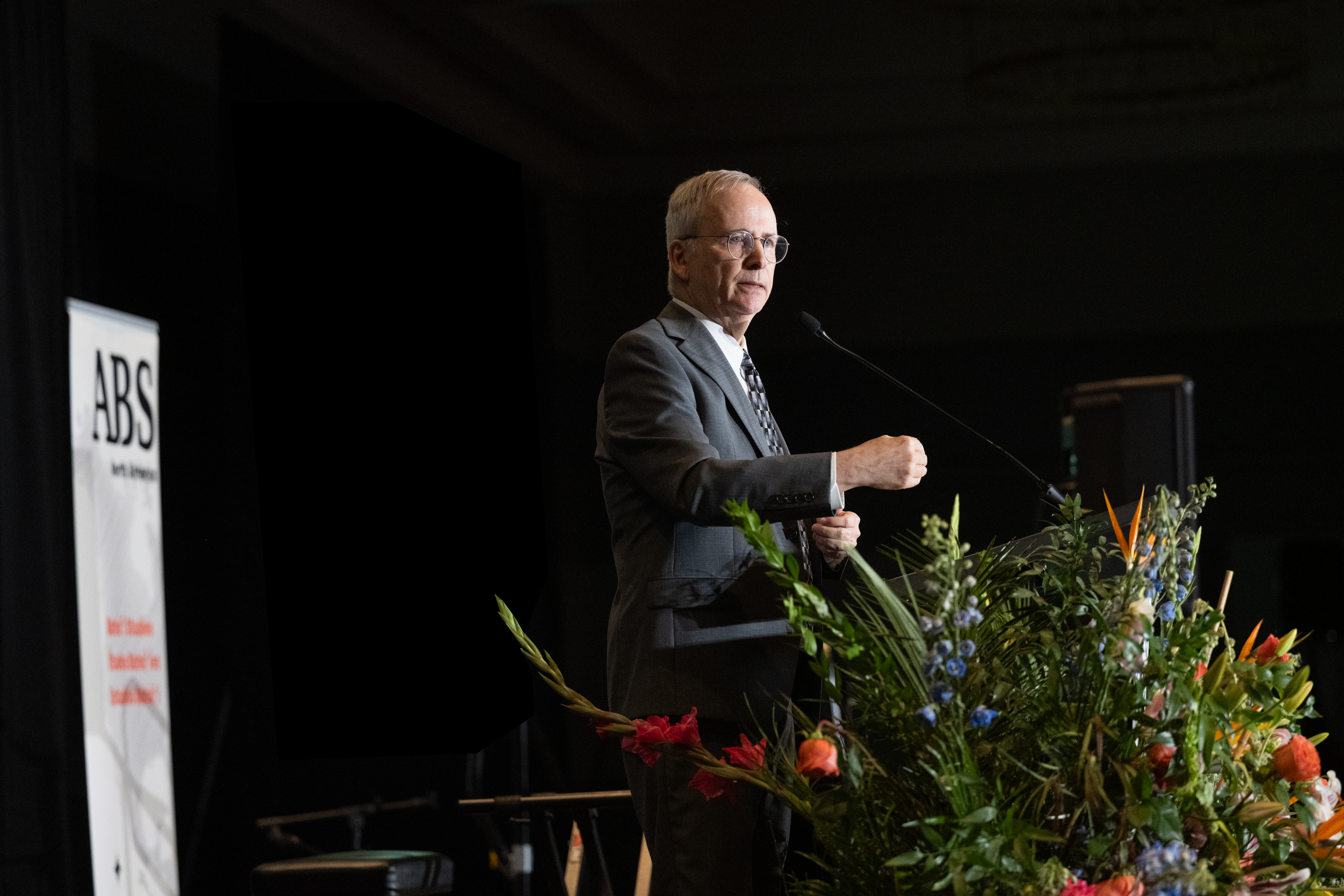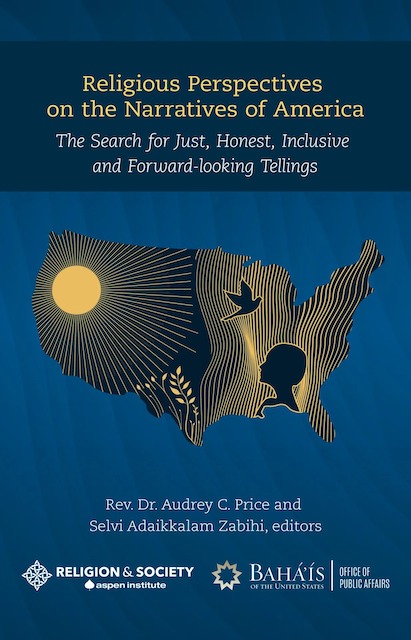
Race Amity conference creates an “Oasis of Love” in Atlanta
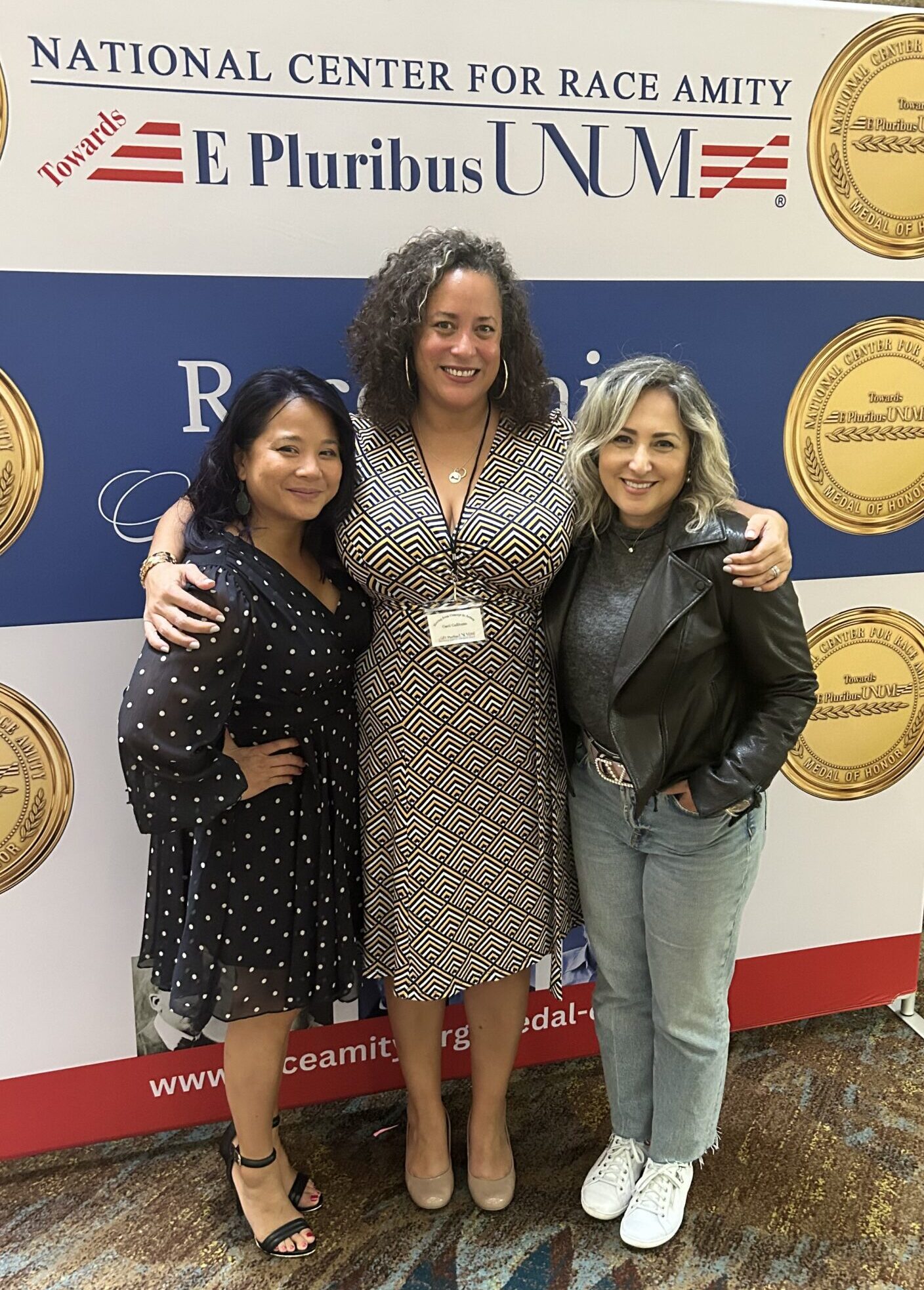
By James Humphrey
It was a potent exchange of ideas and energy in itself, to be sure. But the 2023 Race Amity Conference, Nov. 9–11 in Atlanta, represented something larger as well. It was a surface current in a deep movement to build a framework to spark and strengthen friendships and partnerships. Its long-term vision is to heal racial divides. Its long-term vision includes countering racial divides and moving this country closer to the ideal expressed in this country’s motto, which the National Center for Race Amity has adopted as its own: E Pluribus Unum — out of many, one.
In the middle of a divided and increasingly alienated America, “this conference is an oasis of love and a real place for the cross-fertilization of ideas,” said William Smith, founding director of the National Center for Race Amity (NCRA), an organization inspired by Baha’i teachings that has staged the conference annually for more than a decade.
The NCRA, a Boston-based nonprofit organization, is supported financially by, and operates in consultation with, the National Spiritual Assembly of the Bahá’ís of the United States. Its website (raceamity.org) details several other NCRA initiatives, including a youth leadership academy and advocacy for federal and state recognition of an annual Race Amity Day.
The conference, with the theme “Moving from Concept to Action,” brought together people from several states who are active in the work of bridging racial divides and helping people find their voice and power in that work, especially youth and those from African American and other marginalized communities. All had opportunities to make new connections at common mealtimes and at smaller breakout gatherings.
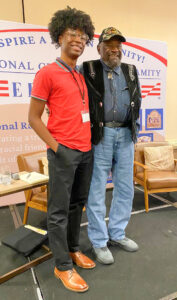
anti-bullying organization, with William “Smitty” Smith,
NCRA founder and executive director. Photo by: Roya Bauman
Many of those people have gained inspiration and connections from the NCRA for years. One panel discussion gave a shared stage to three of them: Devin Moore, a Black student at the University of Maryland, anti-bullying activist and author of the children’s book Devin Speaks Up!; Miles Whitfield, a biracial high school student activist, mentor of at-risk children and Hugh O’Brian Youth Leadership participant; and Howard Ross, white author of books including Reinventing Diversity and longtime diversity consultant.
Their conversation touched on the young people’s journeys through misunderstandings toward greater empowerment, and their efforts to act as agents for change through relationships and workshops that increase understanding among people and groups — not being content with superficial efforts that Ross likened to “smearing cream cheese on top of mud.” Repeatedly stated was the importance, as Whitfield noted, of “openness to other people’s experiences” while staying true to one’s principles, as well as training others in those strengths.
Moore had earlier led a three-hour “Race to Speak Up Against Bullying” workshop. A participant in several NCRAsupported programs the past few years, he said the conference gave plenty of opportunities “to engage in cross-racial and cross-cultural friendships.” It was also a chance to strengthen his unifying work by “gaining ideas and insights from people who have been doing this work a lot longer than I have.”
Other large gatherings at the conference featured:
Aayati Dash Kar, a sixth-grade student who is working with the World Woman Foundation to produce the Queendom Metaverse, an online space for empowerment of 10- to 18-year-old girls. In an impassioned, often poetic presentation, she voiced her struggles as a girl and a person of color to survive bullying and the pressure of mass media that wants to define her. She urged girls to learn their own Herstory so that it can be a complement to history, Toward the emergence of OURstory. “Don’t make noise, use your voice!” she exhorted.
Debby Irving, a racial justice educator and author of Waking Up White, talked about her own journey as a white woman learning about the advantages she grew up with in comparison to many people of color, especially Black and Indigenous. One challenge, she said, is to counter the narrative that progress inevitably means “to assimilate into an Anglo-Christian norm.”
Robin Rue Simmons, reparations advocate and former Evanston, Illinois, alderman; and Celeste Headlee, Boston-area journalist, discussed local and national facets of reparations to African Americans for historic racial injustice. Simmons said that despite widespread skepticism, the reparations movement in Evanston has steadily gained support since government and faith communities began carrying out monetary reparations. It was founded from the start on systematic study of how the Black community has been disadvantaged in Evanston itself, in property wealth building, education, employment and other areas. This “truth-telling initiative … has given us accountability,” she said. Headlee pointed out that though reparations are often mentioned in connection with slavery, many injustices in more-recent years have limited Blacks’ opportunities and wealth and need to be repaired. Those include waves of lynchings and violence against Black neighborhoods and businesses, real-estate redlining and property confiscation, systematic quashing of employment opportunities, and more.
Oletha DeVane attended the conference at the behest of her local Baha’i community in Howard County, Maryland. A veteran of racial justice work among Bahá’ís and in the wider community, she says the conference helped reinforce the importance of doing the groundwork in those efforts, as well as bringing youth into the work. Deepening her sense of “what E Pluribus Unum means,” the programs and connections further illuminated “my part in creating unity in the community.”
A special treat for conference-goers was a tour of historic civil rights sites, centering on the Atlanta neighborhood of the Martin Luther King Jr. Center and the Ebenezer Baptist Church, where King preached in the 1960s. Included in the tour was the nearby future home of the National Race Unity Institute, the educational arm of NCRA. The institute, a center of research, education, training, youth outreach and the arts, will be housed in BE on Edgewood, a coworking space and community center that is under development, according to the NCRA.
The Race Amity Medal of Honor dinner and ceremony on Nov. 9 honored four people who have demonstrated decades of commitment to “advancing access and equity in society through interracial relationships”:
- John Calipari, head basketball coach at the University of Kentucky and Basketball Hall of Fame inductee. He not only has mentored a steady stream of players who act in turn to benefit their own communities, but has also worked with other coaches to spearhead a Minority Leadership Initiative that has opened avenues for minority members to gain footholds in sports administration.
- Robert Henderson, diversity consultant and longtime member of the National Spiritual Assembly of the Baha’is of the United States. He has worked with private business, the commission for the Martin Luther King Jr. Holiday, and the Chicago Human Relations Commission. The chief executive of the Wegman’s grocery chain credited working with Henderson’s consultancy decades ago for helping it become one of Fortune magazine’s 100 best companies to work for.
- Debby Irving, who has offered presentations and workshops to advance racial justice to hundreds of corporate, educational, religious and nonprofit organizations, from the World Bank and Harvard University to small-town committees and high school groups. In video testimonials, fellow racial justice educators praised her adding an effective white voice to the effort to eliminate lingering racial inequities.
- Steve Sarowitz, entrepreneur and founder of the Wayfarer Foundation and Wayfarer Studios. This foundation supports a variety of efforts to promote universal education and to eliminate racism, sexism and religious prejudice. Projects cited at the ceremony were as wide-ranging as executive-producing a documentary about the poet Maya Angelou, ensuring counseling for survivors of a mass shooting in Illinois, and supporting a family education initiative in Georgia.


